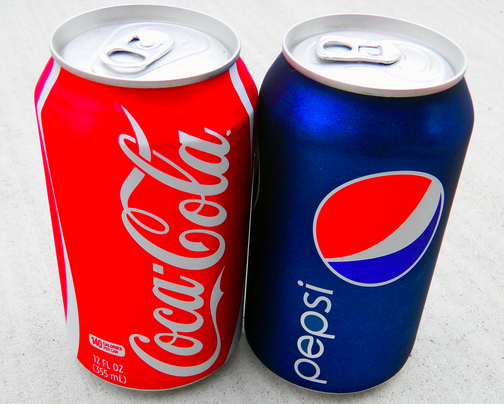Bottled Up

Seemingly forever, Coke and Pepsi have been rivals in the soft drink game. Even the occasional third-party soda company makes light of this fact, as seen in this ad from SodaStream, for example. (The advertisement was, allegedly, intended to be aired during the Super Bowl in 2013. But it was also, allegedly, disallowed by CBS, the broadcaster of the game.) The rivalry isn’t limited to the United States, either. Anywhere people will pay for a bottle of cola — and that’s basically everywhere on Earth — the two are likely in competition.
Sometimes, the two companies get creative.
Leading up to the mid-1990s, Pepsi dominated the cola market in Venezuela. As the Chicago Tribune reported, Pepsi held 40% of the market there at the time with Coke barely registering 10%. This was an exception to the rest of Latin America, where Coke reigned supreme, topping 50% in many areas. Venezuela was regarded by many as a blueprint for Pepsi’s endeavors outside the United States. An expert with industry trade publication Beverage Digest, in a report by the New York Times, called Venezuela “Pepsi’s global success story.” Until Coke stole it away.
Pepsi had been selling four million cases of product each month in Venezuela, all being bottled by a company owned by a man named Oswaldo Cisneros. Cisneros, per Fortune, was a close personal friend of Pepsi’s then-CEO Roger Enrico, and his bottling company was packaging $350 million of Pepsi product each year. As time went on, for reasons unknown, Cisneros wanted to sell part of his interest in the bottling company. Looking for suitors, he claims that he asked Pepsi, who only wanted to purchase a small sliver. Cisneros declined and sought other suitors — ones willing to buy a large part of his company. He found one willing to buy half of the bottler and make an additional investment in the company as well. That investor, of course, was the Coca-Cola Company.
Cisnero’s company stopped bottling Pepsi and switched to Coke. Seemingly overnight, this torpedoed Pepsi’s Venezuelan market share to zero. Coke acquired that business, reaching 50% market share in the country — without much of a fight, let alone a war.
Bonus fact: One place that is free from cola wars? Space. As NASA explains, astronauts have to give up the bubbles when they take to the heavens. The bubbles don’t separate out when the bottle or can (or whatever space-friendly container would be used) is opened in an environment with so little gravity. As a result, the bubbles would enter the astronauts’ digestive systems and get trapped there, with unknown consequences.
From the Archives: Vodka and Cola: How Coke made inroads in the Soviet market.
Related: “The Other Guy Blinked: How Pepsi Won the Cola Wars” by Roger Enrico. (Yes, really.) Published in 1986.
